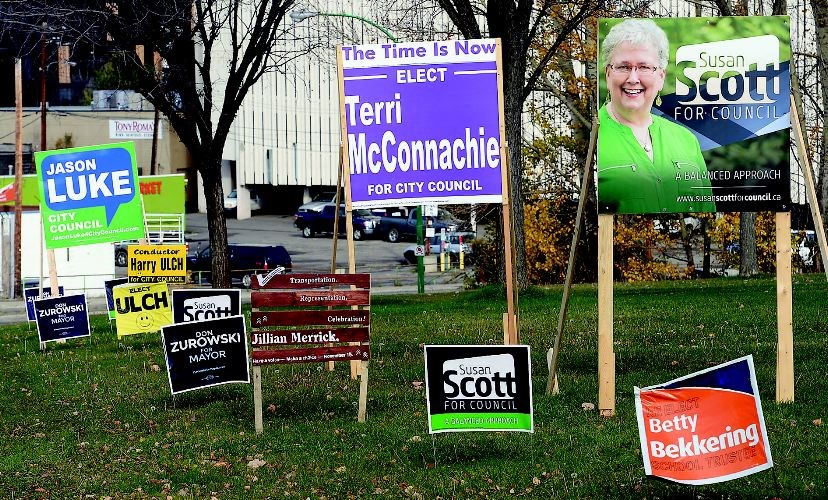The group responsible for recommending spending limits for municipal elections is looking for public input.
A committee of MLAs will host a public hearing in Prince George on April 1 to gather feedback on expense limits for local election candidates, including mayors, councillors, school board trustees and other office holders. The bi-partisan committee is also examining expense limit amounts for third-party advertisers.
Interested parties are also invited to make written submissions to the committee, which will be accepted until April 17.
The information will inform the second part of the Local Elections Campaign Financing Act, which was initially passed last May. The legislation introduced rules that were in effect for last fall's municipal election, including new disclosure rules for candidates, elector organizations and third-party advertisers that are enforced by Elections B.C.
"We want to continue hearing from British Columbians about what would be appropriate local elections expense limits for candidates and third party advertisers," said committee chair Jackie Tegart, in a press release.
Instituting a spending cap was one of 31 recommendations made by the Local Government Elections Task Force in 2010.
A discussion paper published by the province in late 2013 on the topic notes that its difficult to compare the expense limits in other jurisdictions because "different provinces have very different rules as to how election expense is defined, which elections expenses actually count against the expense limit, and how long the period is in which spending is capped."
In Ontario, provincial legislation sets the limits for mayoral campaigns to a base of $7,500 plus an additional $0.85 per elector. Council and school board trustee candidates can spend a base of $5,000 and $0.85 per elector.
Using that model, (keeping in mind there are often ward systems in other local governments outside of B.C.) and the estimated number of eligible voters from the 2014 election (57,363), only mayoral candidate Don Zurowski - whose campaign cost more than $72,000 - would have overspent the limit.
In Quebec, spending limits are in force for municipalities of more than 5,000 people. Mayoral candidates can spend a base of $3,780, plus an additional $0.30 per elector up to 20,000 people, $0.51 per elector from 20,0000 to 100,000 people and $0.38 per elector over 100,000 people.
Council candidates can spend a base of $1,890 plus $0.30 per person.
Under the Quebec model, both Lyn Hall and Zurowski would have overspent the limit, which works out to nearly $28,900 and three council candidates (Frank Everitt, Albert Koehler and Debora Munoz) would have outstripped the almost $19,100 limit.
In Manitoba, each municipality can set their own limit. Winnipeg uses a population formula, while a city like Brandon sets a hard limit of $16,000 for mayoral campaigns and $4,000 for councillors.
Fourteen of the Prince George council candidates and both mayoral candidates would not have fallen within the Brandon spending confines.
Municipalities can also set their own limits in Newfoundland and Labrador. In St. John's, both mayoral and councillor campaigns are subject to a $10,000 base plus $1 per voter in the ward or at large area. That would have given Prince George candidates a $67,363 limit, which all but Zurowski would have fallen under.
Last summer, the government approved a province-wide expense limit model for candidates and third-party advertisers using a flat rate amount in jurisdictions under 10,000 people and a per-capita formula for those larger than 10,000. The third party limit will be a percentage of a candidate's limit in the municipality where the third-party is advertising.
A round of public consultations last fall to help narrow down the principles behind the amounts highlighted the concepts of fairness, neutrality, transparency and accountability as the main priorities for the limits.
"Members affirmed the principle of fairness and accessibility as meaning a 'level playing field' for all participants, and the concept that a participant cannot simply purchase the election by excessive spending," said a December 2014 committee report.
The committee is supposed to make its final recommendations regarding the specific amounts by June 12.
The April 1 public hearing will be from 8 to 11 a.m. at Coast Inn of the North in the Summit room. To register to participate, call 1-877-428-8337 or email [email protected] with the names and contact information.
For more information on the work of the committee, to make a written submission or complete an online survey, visit www.leg.bc.ca/cmt/leel.



